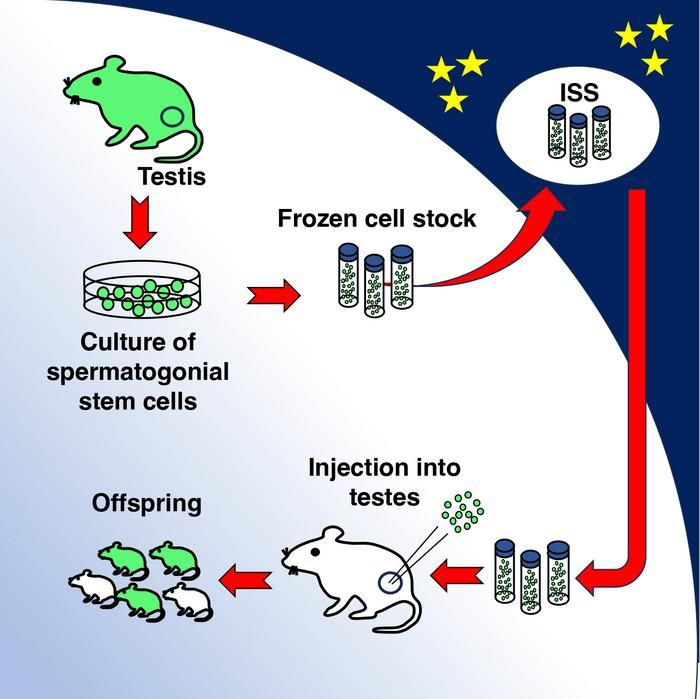
Posted on 08/30/2025 11:15:51 AM PDT by BenLurkin
Spaceflight has a broad impact on the way our body functions — and that includes our reproductive systems. Indeed, to get a better idea of how future pregnancies and new generations born to humans beyond Earth will be affected, scientists need to examine how well our reproductive germ cells and stem cells respond to potentially harmful factors, like radiation and microgravity.
Researchers from Kyoto University in Japan did just this: They froze the spermatogonial stem cells of mice through a process called cryopreservation, then kept them on the International Space Station (ISS) for six months. Once back on Earth, researchers injected the same spermatogonial stem cells — which are cells located in the testes that play a crucial role in sperm production — back into the testes of mice. After a few months, following natural mating patterns, healthy mice babies were born with relatively normal gene expression.
Researchers were pleasantly surprised to find that spaceflight did not affect how well the germ cells sustained themselves through cryopreservation, underlining an important option for future human use.

While research has found that menstruation itself (the bleeding portion of the menstrual cycle) is largely unaffected by spaceflight, how microgravity and radiation affects follicular development (the phase of the menstrual cycle where an egg is matured and selected for ovulation) and ovulation (the release of an egg for potential pregnancy) in humans requires further research
(Excerpt) Read more at space.com ...
Democrat women are so ugly, they can’t breed down here. The rats are hoping to get lucky in space.
Explains why the hatchet-faced astronautettes on the space station are always smiling. They know the men there have no alternatives.
There is a Netflix Korean drama show (When the Stars Gossip - 10 episodes) which, a not always scientifically correct way, poses the question of possible human reproduction in space, without negative results. The question begins with legitimate (using mice) attempts at fertilization with sperm and egg, and smuggled in, not sanctioned, attempts at in vitro fertilization with human sperm and egg, in the weightlessness on a earth orbiting space station. After all the drama with those matters, there is, under the worst conditions possible, a human pregnancy that comes about - on the space station.
I am sure that many aspects of the show are not scientifically correct, but the drama also includes many moral questions and debates, and struggles, which would be the case even with the scientifically incorrect parts.
I wonder if they will be granted universal citizenship?
“I wonder if they will be granted universal citizenship?”
Nations will need to make laws that human children born in space carry the citizenship of their human biological parents.
However, many nations today, including the U.S. allow for “dual citizenship” - citizen simultaneously with two nations (yes, U.S. law has never prohibited it for U.S. citizens).
Should humans have actual living/working self-governed off-world settlements, human laws will have to reconsider the citizenship issue, to permit, or deny, dual citizenship with human off-world domains.
Disclaimer: Opinions posted on Free Republic are those of the individual posters and do not necessarily represent the opinion of Free Republic or its management. All materials posted herein are protected by copyright law and the exemption for fair use of copyrighted works.